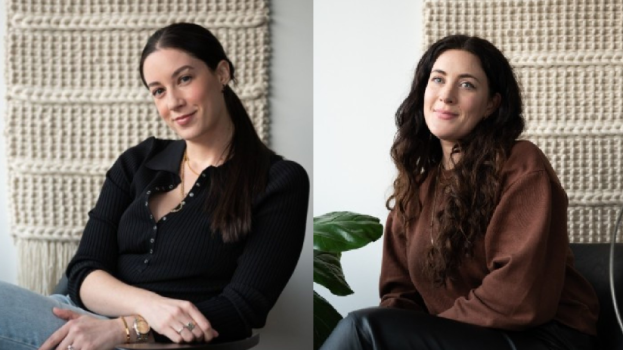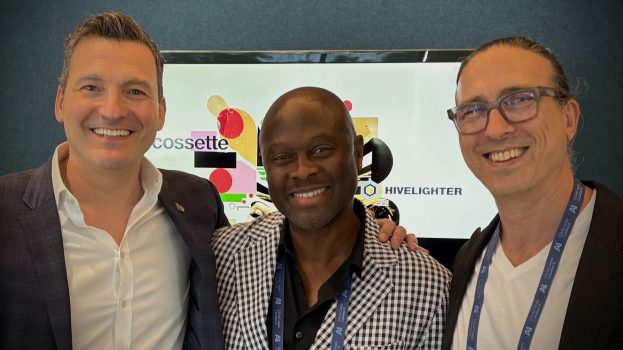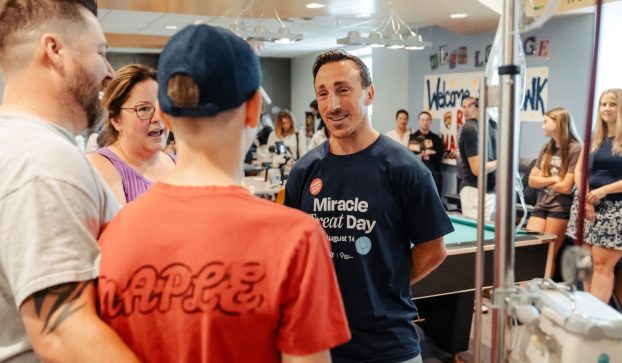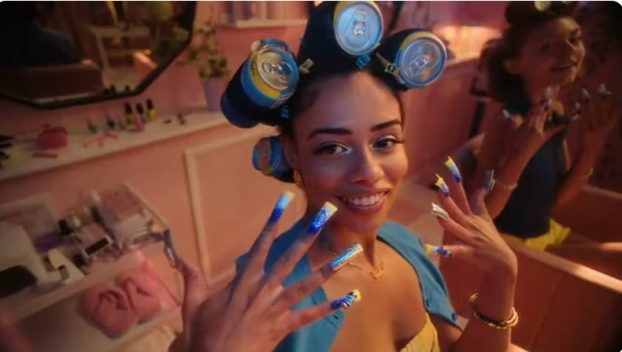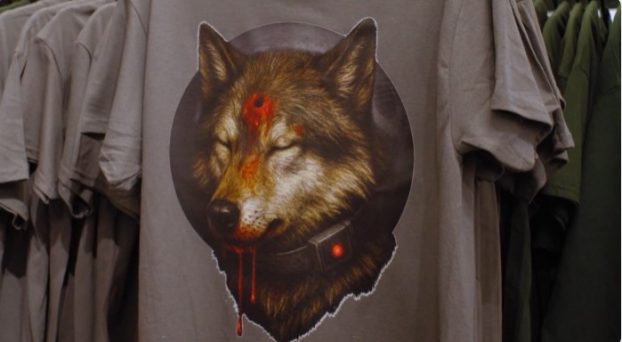PR and Direct
A couple months ago, the police services in Calgary and California banded forces. They urged Canadians and Americans in violation of traffic laws to become organ donors and gave thanks to those who had already given their consent by paying it forward with a warning, instead of a fine.
Fast-forward to today in Cannes, and the collaborative program has been deemed, by the festival’s PR jury, a Gold Lion medalist.
The campaign is the second piece from McCann Worldgroup to have its medals shared between offices across the U.S.-Canada border, the first of which won a Grand Prix on Tuesday. Both Toronto’s McCann and California’s Casanova/Costa Mesa partnered to execute the Gold PR-winning “Second Chances” program for Donate Life California – proving that it pays to play nice with others.
“While our focus was on executing the Canadian program, we all worked together around the amplification of the story, using the best material to make it the most impactful story that it could be,” explains Josh Stein, ECD at McCann Canada, about the campaign that was centred around driving and getting people to talk about organ donations across the two regions.
The campaign did exactly that by having police officers in the province and state present “second chances” to offending drivers (who were pulled over for traffic violations, such as not stopping completely at a stop sign) instead of a fine. While the second chance was primarily given to drivers who had the organ donor symbol on their drivers license (signifying that they have consented to giving others a second chance at life), those without the symbol on their card were, at the discretion of the officer, also let off with a warning in exchange for their consideration to become a donor.
[iframe_youtube video = “cIRIdg1dyE4”]
It was that clear call-to-action that made the campaign a two-time winner in the Direct category, says Nellie Kim, VP and ECD at Lg2, who sat on this year’s ten-person jury.
“Second Chances” bagged a Silver and Bronze Lion in the category, while three other shortlisted pieces from Canada did not win a Lion, mostly because the jury didn’t see a clear enough connection to direct, says Kim.
Kim explains that Oh! Henry’s 4:25 bar from Anomaly, the Leaf Forward rolling paper from Rethink and Bensimon Byrne’s pop-up for Casey House did not fit the criteria set out by the jury – which the Direct jury president, Nicky Bullard from MRM//McCann, said revolved around four questions: “Is it targeted? Does it make me feel something? Has the brand asked me to do something? And did I do it?”
“I feel that with Direct, you really have to tailor the entry for Direct,” says Kim, noting that only campaigns with a CTA made it through to medal. “If you have a Direct component in your integrated campaign, it can’t just be assumed that it’s there.”
Social & Influencer
Of the 1,500 entries submitted this year for the inaugural Social & Influencer category, only 3% made it to the shortlist, says jury president PJ Pereira, founder and creative chairman of Pereira O’Dell. Eight of those shortlisted campaigns were from Canada, three of which left the show with a Lion.
The first Lion was a Silver and it went to Grey for its “First Shave” campaign for Procter & Gamble. The piece includes a film that shows a Toronto-based transgender artist and activist going through his first shave with his father. It is also shortlisted for a Glass Lion, with the winners to be announced later this week in Cannes.
The second and third Lions were Bronze, one each for FCB/Six Toronto and Cossette. The former agency snagged the prize for its “Go Back to Africa” work that aimed to take “go back to Africa,” often used as a racist statement against Black people in America, and reimagine it as something beautiful, not barbaric – seeding it out to the world via manipulated social posts. While the latter shop picked up a Bronze Lion for its SickKids “VS: Crews” work, which rallied passionate social media influencers to join forces and move a “crew” of new donors to help raise funds for the hospital’s new building.
Jury president Pereira explained that the jurors wanted to award work that showed the “nuances and possibilities of social” in an age when “speed and purpose matter more than ever.” He added that “brands are developing a clear sense of voice in a space where there used to be a community manager in the corner of the room – now there is an even bigger voice developing in social.”
The Grand Prix winners
In Social & Influencer, Wendy’s and VMLY&R left the festival gala with a Grand Prix for their “Keeping Fortnite Fresh” program that pushed the brand deep into youth culture by inserting the QSR’s mascot into the game.
[iframe_youtube video = “Wp8THyv0KGg”]
Pereira said it was deserving of the prize because because it showed how a brand can effectively, and quickly, jump into “a new form of social” (referring to Fortnite as a growing channel for social engagement).
“There is a clear movement in creating purpose around work… And it’s in Cannes where this trend [and others] hit their apex,” he added. “But then all of a sudden you see a new trend that is very product-centric and what we need to do as an industry. This is a new filter for the industry.”
Over in PR, the Grand Prix went to the “Tampon Book: A Book Against Tax Discrimination” by Scholz & Friends in Germany for The Female Company.
[iframe_youtube video = “0pV27z3Cxqs”]
“The tampon book is a great example of modern communications,” said jury president Michelle Hutton, managing director of global clients at Edelman. “It combines creativity with the craft of public relations. This is a call out to the industry to work closer with the creative community. When the two crafts go hand-in-hand, this is the type of work that can be produced.”
And finally, in Direct, the top prize went to the “Whopper Detour,” a campaign by FCB New York for Burger King, which jury president Bullard said used “data and targeting to answer a business problem.” She called it “pure genius” and commented that, across the winners in this category, “the work [that had a purpose and did good] won because it was absolutely relevant for the brand and not just a nice-to-do.”
[iframe_youtube video = “CDhC6LsAJgM”]



